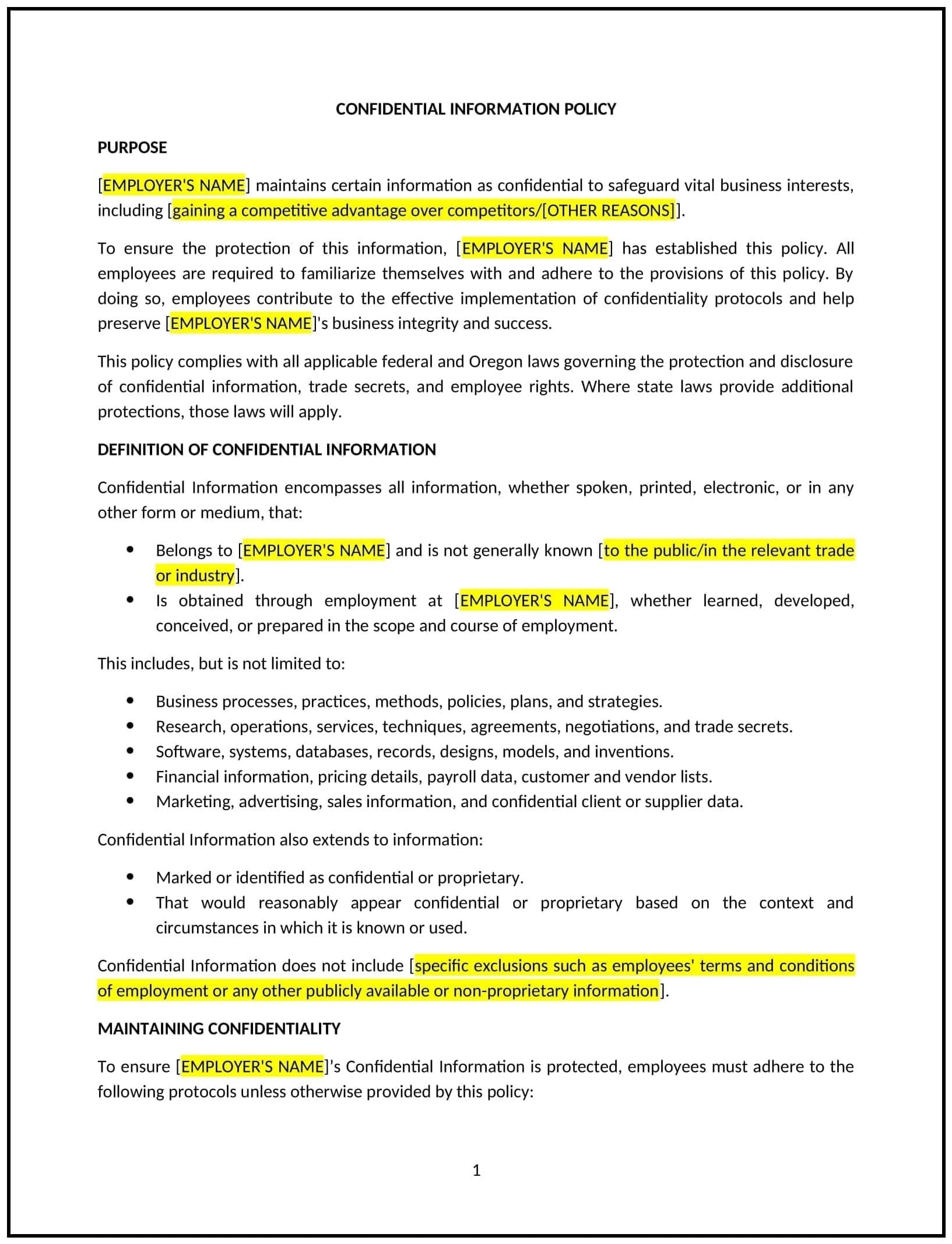Confidential information policy (Oregon): Free template
Got contracts to review? While you're here for policies, let Cobrief make contract review effortless—start your free review now.

Customize this template for free
Confidential information policy (Oregon)
This confidential information policy is designed to help Oregon businesses establish guidelines for protecting sensitive business information. It outlines procedures for handling, storing, and sharing confidential information.
By adopting this policy, businesses can safeguard proprietary information, reduce risks, and maintain trust with stakeholders.
How to use this confidential information policy (Oregon)
- Define confidential information: Clarify what constitutes confidential information, such as trade secrets, customer data, or financial records.
- Establish handling procedures: Outline steps for handling confidential information, including access controls and encryption.
- Address storage: Specify guidelines for storing confidential information, such as secure servers or locked filing cabinets.
- Set sharing restrictions: Provide rules for sharing confidential information, including non-disclosure agreements (NDAs).
- Train employees: Educate employees on the policy and their responsibilities when handling confidential information.
- Review and update: Assess the policy annually to ensure it aligns with evolving business needs and legal requirements.
Benefits of using this confidential information policy (Oregon)
This policy offers several advantages for Oregon businesses:
- Protects proprietary information: Safeguards trade secrets, customer data, and other sensitive information from unauthorized access.
- Reduces risks: Minimizes the likelihood of data breaches, legal issues, and reputational damage.
- Maintains trust: Demonstrates the business’s commitment to protecting stakeholder information.
- Enhances compliance: Aligns with Oregon’s laws regarding data protection and privacy.
- Aligns with best practices: Offers a structured approach to managing confidential information.
Tips for using this confidential information policy (Oregon)
- Communicate the policy: Share the policy with employees and include it in the employee handbook.
- Provide training: Educate employees on the policy and their responsibilities when handling confidential information.
- Monitor compliance: Regularly review information handling practices and address any issues promptly.
- Address issues promptly: Take corrective action if confidential information is mishandled or shared improperly.
- Update regularly: Assess the policy annually to ensure it aligns with evolving business needs and legal requirements.